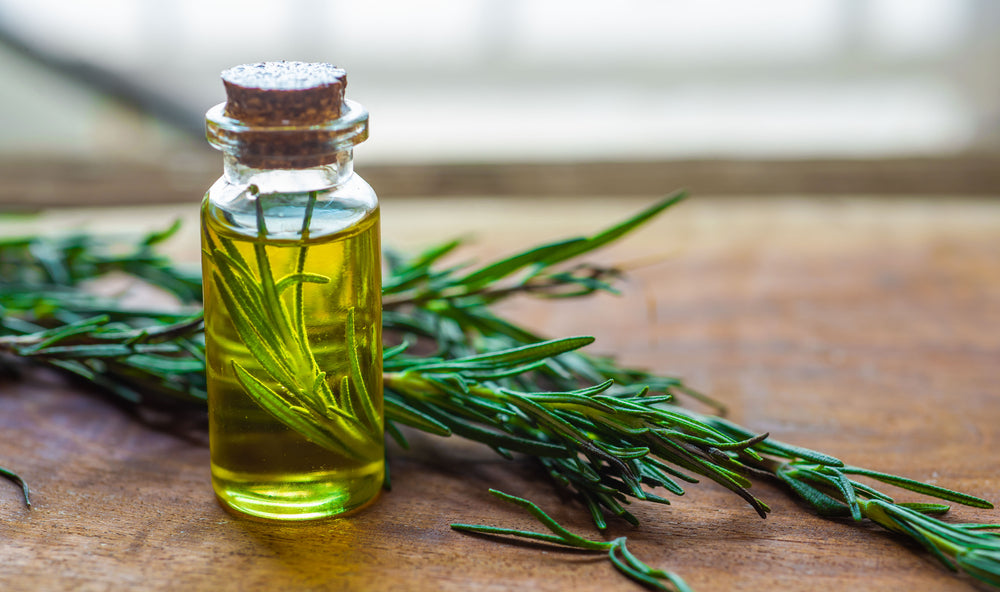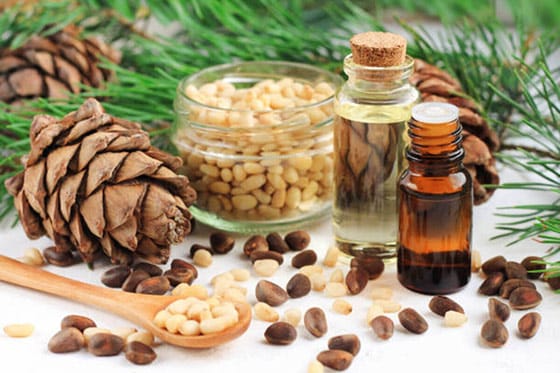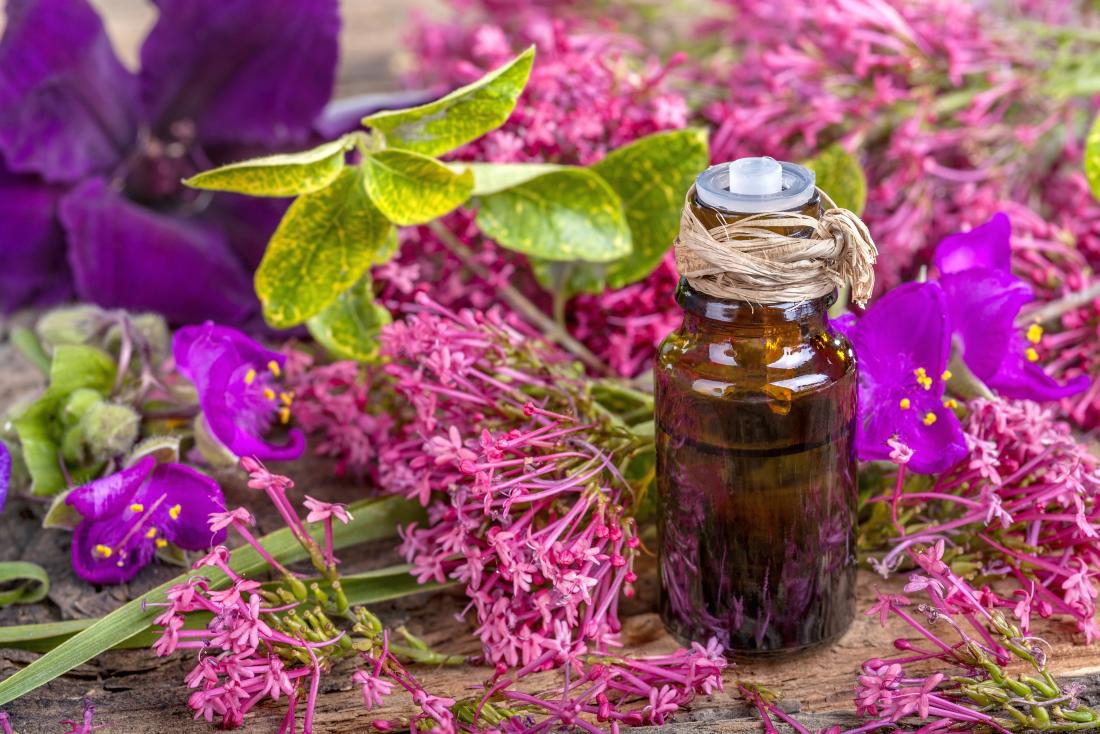Essential oils are produced from plants using procedures such as distillation or evaporation. While essential oils are well known for their fragrant effects, they also have powerful chemical properties that may be helpful to health.
Essential oils have long been utilised in alternative, Eastern, and homoeopathic treatment due to their efficacy and lack of adverse effects.
Some essential oils may help improve hair health. Different oils may do anything from promote hair growth to increase strength and lustre.
Essential oils for your hair and scalp
1. The essential oil of lavender

Using lavender oil helps hasten the development of your hair. With the knowledge that lavender oil has qualities that may stimulate the development of cells and alleviate stress, researchers conducted an animal study and discovered that this oil was able to stimulate quicker hair growth in mice.
Additionally, it has antimicrobial and antibacterial characteristics, leading to an improvement in the health of the scalp.
The mixture should be applied straight to your scalp after you have combined few drops of lavender oil with three tablespoons of a carrier oil such as olive oil or melted coconut oil. It is recommended that you leave it in for a minimum of ten minutes before rinsing it out and shampooing it as you traditionally would. You are able to do this several times per week.
2. Essential oil of peppermint extract

When it is administered to a specific location, peppermint oil may stimulate circulation, which might result in a tingling sensation that is similar to a cold. The anagen phase, also known as the growing phase, is a time when this may assist encourage hair growth.
It was discovered in a research that the application of peppermint oil to mice resulted in an increase in the number of follicles, the depth of the follicles, and total hair growth.
You may use whatever carrier oil you choose, and then combine two drops of peppermint essential oil with it. After massaging it into your scalp, you should wait five minutes before completely rinsing it out with shampoo and conditioner.
3. Essential oil of rosemary

Because of its capacity to stimulate the production of new cells, rosemary oil is an excellent option for those who want to increase the thickness of their hair as well as the rate at which it grows.
One studyTrusted Source found that rosemary oil functioned similarly to minoxidil, a typical medication for hair growth, but with fewer adverse effects, including a reduction in the amount of irritation that occurred on the scalp.
Combine a few drops of rosemary oil with a few drops of olive or coconut oil, and then massaging the mixture into your scalp. Allow it to sit for a minimum of ten minutes before washing it out with shampoo. For optimal results, do this action twice each week.
4. The essential oil of cedarwood

It is believed that the oil-producing glands in the scalp may be brought back into balance by using cedarwood essential oil, which in turn can stimulate hair growth and minimise hair loss. Additionally, it has antibacterial and antifungal qualities, which allow it to cure a variety of illnesses that may be associated with dandruff or hair loss of various kinds.
In addition to being proven to minimise hair loss, cedarwood extract was also found to be effective when combined with rosemary and lavender.For people who suffer from alopecia areata, a reliable source.
Using a carrier oil of your choosing, combine a few drops of cedarwood essential oil with two teaspoons of essential oil. You should massage it into your scalp and then let it on for ten minutes before rinsing it off afterwards.
You may have a difficult time locating it at grocery shops; however, you may be able to acquire it from health food stores that are on the smaller side.
5. The essential oil of lemongrass

A healthy scalp that is free of flakes is an essential component of good hair, and dandruff is a condition that may affect a significant number of people. One research conducted in 2015 found that lemongrass oil was an excellent therapy for dandruff, since it drastically decreased the amount of dandruff that was present after only one week.
When applied on a regular basis, lemongrass oil is the most effective treatment for dandruff. A few drops should be mixed into your shampoo or conditioner on a regular basis, and you should be sure to massage it into your scalp.
6. Thyme essential oil
Thyme has the ability to stimulate the scalp and actively prevent hair loss, both of which are actions that may help encourage hair growth. In the same way that cedarwood oil was discovered to be beneficial in the treatment of alopecia areata, thyme oil was also proven to be effective.
Even when compared to other essential oils, thyme is very potent. Before you apply it to your scalp, you should only put two little drops into two teaspoons of a certain carrier oil. First, let it sit for about ten minutes, and then wash it off.
7. Clary sage essential oil

Clary sage oil includes the same linalyl acetate that is found in lavender oil, which in turn contributes to the effectiveness of lavender oil in promoting hair growth. Furthermore, it has the ability to enhance the strength of hair, in addition to promoting hair development, which makes hair more resistant to breakage.
You may combine three drops of clary sage oil with your preferred conditioner, or you can combine it with one tablespoon of carrier oil. Rinse it out after two minutes if you use it on a daily basis. If you only use it once or twice a week, you should leave it on for ten of those minutes.
8. The essential oil called tea tree
In addition to its excellent cleaning and antimicrobial effects, tea tree oil also contains antibacterial qualities. Increasing hair growth and unplugging hair follicles are also possible outcomes of its use topically.
Because tea tree oils are available in a wide range of concentrations, it is essential to adhere to the instructions provided by the manufacturer. Additionally, some of the items are essential oils that are very concentrated, while others are a mixture of oil or cream.
A study conducted in 2013 discovered that a combination of tea tree oil and minoxidil was more beneficial in promoting hair growth than the use of minoxidil alone. However, further research is required to determine the efficacy of using tea tree oil alone.
According to a research that was conducted in 2015, tea tree oil is often used in anti-dandruff treatment solutions.
In order to utilise tea tree essential oil on a regular basis, you may include ten drops of the oil into your shampoo or conditioner. There is also the option of combining three drops with two teaspoons of a carrier oil, allowing the mixture to sit for fifteen minutes before washing it off.
9. Ylang-ylang essential oil.
However, ylang-ylang oil is an excellent choice for those who have dry scalps since it has the ability to increase the production of sebum. Those who have oily hair and skin should avoid using this product.
A lack of oil and sebum in the hair may cause it to become dry and brittle. Ylang-ylang has the ability to enhance the texture of the hair and minimise the amount of hair that breaks.
The mixture should consist of two tablespoons of heated oil and five drops of essential ylang-ylang oil. While you are doing so, put a warm cloth over your head and massage it into your scalp. It is recommended that you wait thirty minutes before washing it out. Ylang-ylang is also available in a variety of formulations, including shampoos and creams respectively.
